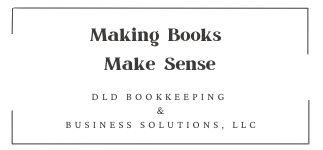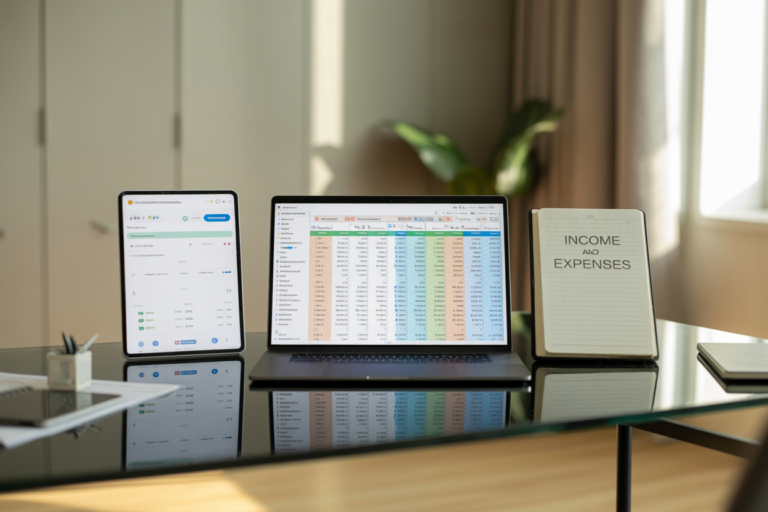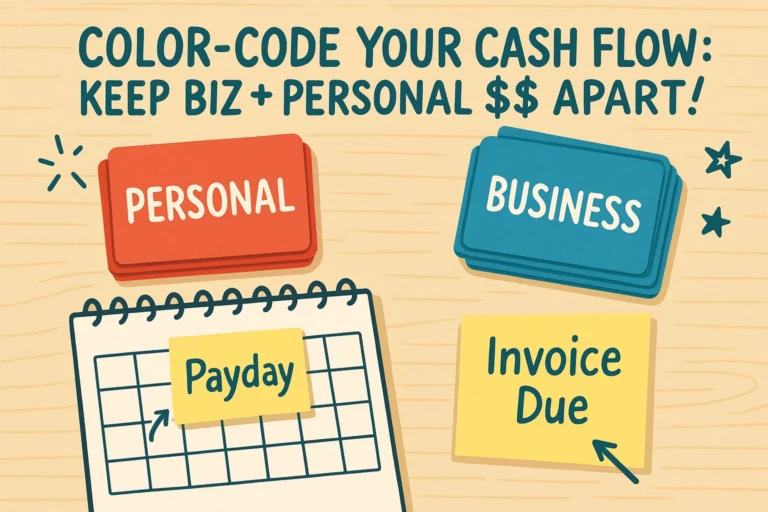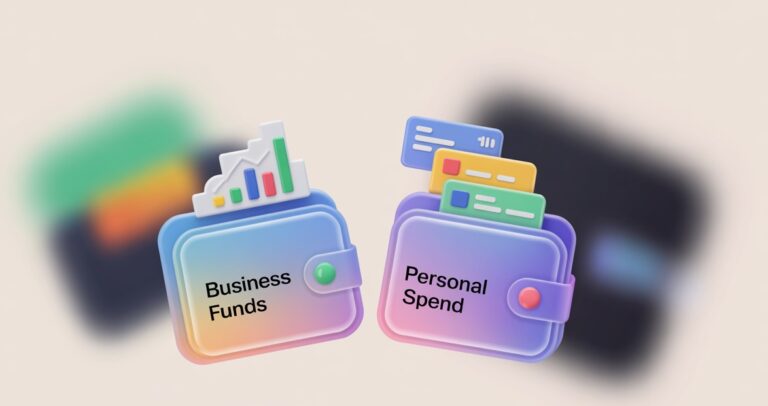10 Easy Bookkeeping Tips Every Small Business Owner Should Know
Bookkeeping probably wasn’t the reason you started your business — but ignoring it can be the reason it fails.
As a small business owner, knowing where your money is going (and where it’s coming from) is non-negotiable. But let’s be real — bookkeeping can feel overwhelming, especially if you’re not a “numbers person.”
This guide breaks down 10 simple, actionable tips to help you stay on top of your finances without losing your mind (or your receipts). Whether you’re just getting started or need a bookkeeping refresh, these tips will help you stay organized, avoid surprises at tax time, and feel more confident in your business decisions.
Table of Contents
1. Get Organized From Day One
The biggest mistake business owners make? Waiting too long to get organized. Start strong with these basics:
- Open a separate business bank account — this keeps your books clean and helps build business credibility.
- Never mix personal and business funds — this is called “commingling,” and it’s a bookkeeping nightmare. If you ever go to a professional for help with your bookkeeping or taxes, commingling will also cost you a lot of money for them to manage.
- Pick a bookkeeping method that works for you — spreadsheets are fine for now, or try beginner-friendly tools like Wave, Xero, or QuickBooks Simple Start.
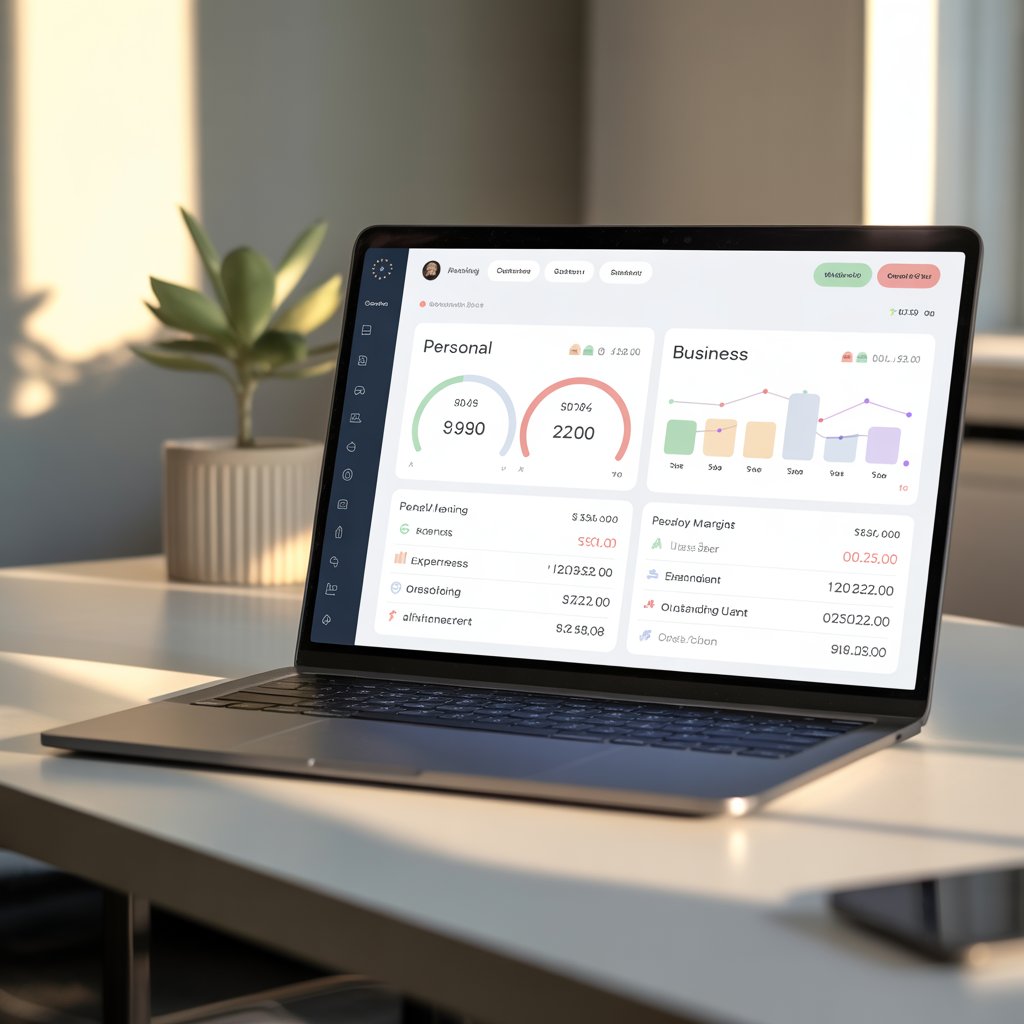
2. Track Every Dollar
Every cent matters — and you need to know where it all goes.
- Record income and expenses as they happen (or batch them weekly).
- Save receipts — go digital using tools like Google Drive, Dropbox, or software receipt scanners. Most phones offer a free scanning option with your camera or you can also use an app like Adobe Scan (free). I save my receipts with the date and vendor in the file name.
- Use categories — break down expenses into groups like supplies, software, marketing, etc., so you can analyze and budget more easily.
3. Stay Consistent With Your Records
Bookkeeping isn’t a “once a year” activity — it’s an ongoing habit.
- Set a schedule for daily, weekly, or monthly bookkeeping — and stick to it.
- Check your work — missing entries or typos can throw off your entire year.
Consistency is what makes taxes easier and financial planning possible.
4. Keep Up With Invoices and Payments
Your business can’t survive if clients aren’t paying you.
- Send invoices ASAP after delivering a product or service.
- Follow up on late payments — don’t let overdue invoices slide.
- Make it easy to pay — offer online payments, card options, or ACH transfers to reduce friction.
Another note here – if you are using an automated system or application to accept payments, check regularly to make sure they are going through. Even large companies like Intuit have occasional issues with recurring payments in QuickBooks not going through.
5. Set Money Aside for Taxes
Taxes don’t have to be scary — but they will be if you don’t plan ahead.
- Learn your tax obligations early (income tax, self-employment tax, sales tax).
- Save a percentage of each payment (20–30% is a safe range) into a separate savings account.
- Track deductions throughout the year instead of scrambling during tax season.
- ***Make sure you are making these payments on time!***

6. Reconcile Accounts Regularly
Reconciling just means comparing your bookkeeping records with your bank or credit card statements.
- Do this monthly to spot errors before they pile up.
- Fix any mistakes (wrong dates, duplicate entries, etc.).
- Watch for fraud or unrecognized charges — they happen more than you’d think.
7. Budget and Plan Ahead
Your bookkeeping isn’t just about the past — it should help you plan the future.
- Create a simple monthly budget — set income and expense goals.
- Compare your budget to reality — what’s working? What needs adjusting?
- Use insights from your records to plan smarter next month.

8. Get Professional Help When Needed
You don’t have to do it all alone.
- Hire a bookkeeper or accountant if your books feel overwhelming or if your business is growing fast.
- Work with a pro during tax season to avoid costly mistakes.
- Ask questions and learn — even if you outsource, understanding your finances is empowering.
9. Use Technology to Your Advantage
You don’t need to do everything manually anymore.
- Automate invoicing and expense tracking to save time and reduce errors.
- Use cloud storage for backup — never lose a receipt again.
- Explore reports and insights from your software to understand trends and patterns.
10. Review and Improve Regularly
Bookkeeping is not a “set it and forget it” thing.
- Set a quarterly review date to assess what’s working and what’s not.
- Look for ways to streamline — is there a faster or simpler way to do something?
- Stay informed about tax law updates and small business finance tips.
Start your Bookkeeping Now!
How to Set Up a Simple Bookkeeping System — Even If You Hate Numbers
Comparing Bookkeeping Software
When Should You Hire a Bookkeeper?
https://www.irs.gov/businesses/small-businesses-self-employed
How often should I update my bookkeeping records?
The best option is to do it at least weekly. It’s easiest to add transactions as they occur — but monthly at the very least.
Consistency is key. If you wait too long to update your bookkeeping, you may have issues recalling details of transactions.
What’s the best bookkeeping software for small businesses?
Truthfully, the answer is the software that works for you. If you are just starting out, a spreadsheet might be fine.
Wave (free), Xero (paid), and QuickBooks (paid) are all good options. You should be able to get a free trial of the paid options to give it a try and see what works for you.
How long should I keep receipts and records?
The IRS recommends 3–7 years, depending on the type of document. Digital backups are your best friend.
I find it easiest to snap a picture or save a pdf of my receipts and save them with the date and vendor name.
Do I need a bookkeeper?
Maybe. It depends where you are with your business. I would suggest checking out my post about deciding when to hire a bookkeeper, it’s linked right above the FAQs.
What expenses can I deduct as a small business owner?
Things like software, advertising, office supplies, and travel — but always confirm with a tax pro!
Also check out the link to the IRS Small Business Center above linked above the FAQs.
How do I prep for tax season all year long?
Track income/expenses, save receipts, and set aside money for taxes consistently. Don’t wait until January.
Remember
Bookkeeping doesn’t have to be complicated — but it does have to be consistent.
Start simple: track your money, stay organized, and don’t be afraid to ask for help. These small habits can make a huge difference in your business’s success and your peace of mind.
Got a favorite bookkeeping tip? Or still have questions? Drop a comment below — I’d love to hear from you! Remember, we are here to help, you can always submit questions on our site or request our professional help if you don’t want to do this alone! Contact Us!
